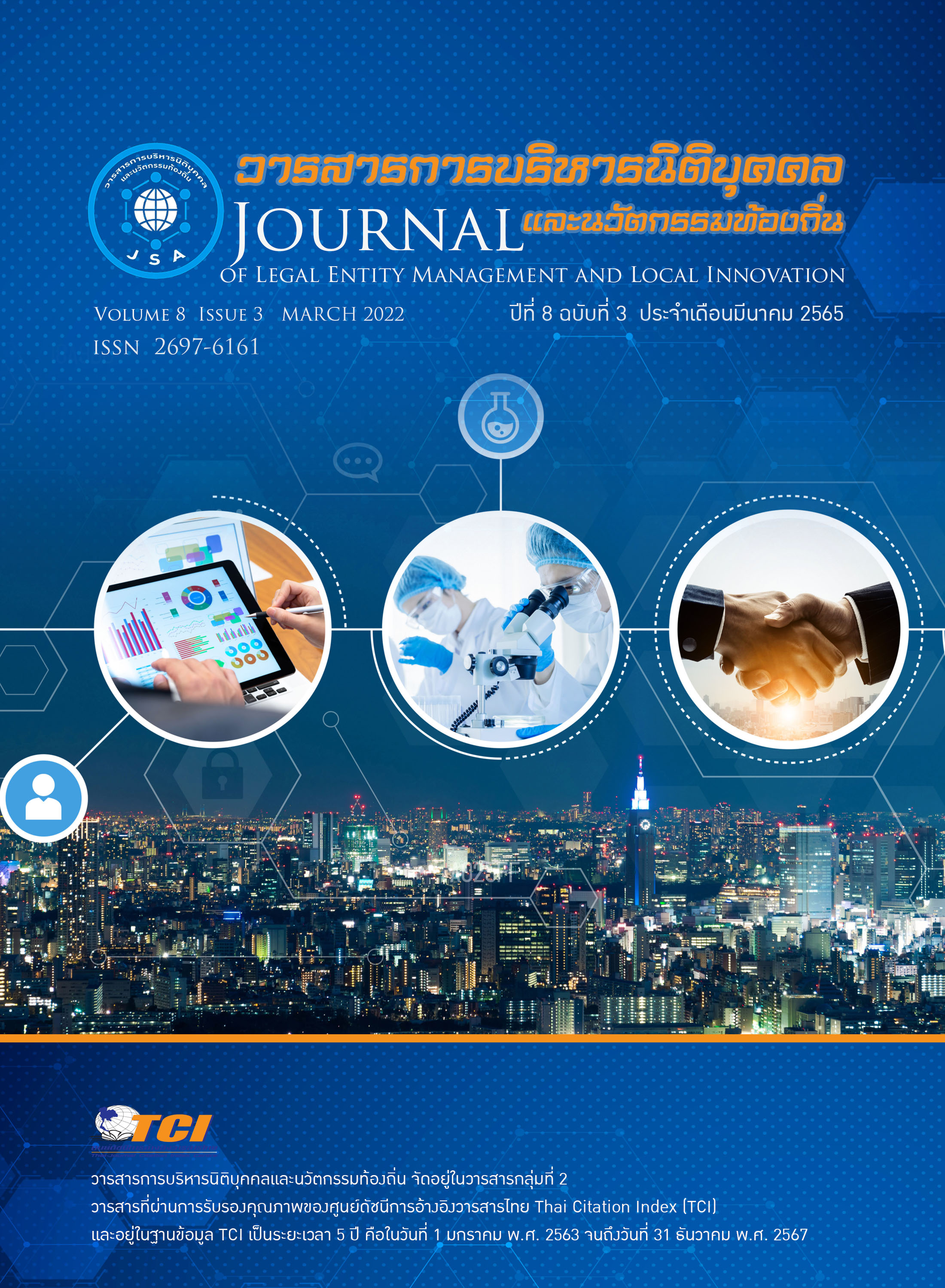The Management Model of the Propagation of Buddhism Following the Ascetic Practice of Wat Bhuddhobhavana in Bang Khurut Sub-District, Bang Bua Thong District, Nonthaburi Province
Keywords:
Management, Propagation of Buddhism, Dhutanga VattaAbstract
The general condition of the monks and the people who had opinions on the administration of Buddhist propagation according to the ascetic practice of Wat Bhuddhobhavana, Bang Khurat Sub-District, Bang Bua Thong District, Nonthaburi Province found that 1. Most of the respondents, 94 people or 53.7% were women, followed by 81 people or 46.3% 2. Most of the respondents, 64 people or 36.6% 3. Most of the respondents, 107 people or 61.1% 4. Most of the respondents, 86 people or 49.1% 5. Most of the respondents 47 people or 26.9% 2. When the opinions of monks and people towards the Buddhist propagation management model according to the ascetic practice of Wat Bhuddhobhavana, Bang Khurat Sub-District, Bang Bua Thong District, Nonthaburi Province were compared, classified by personal factors found that in overall, the monks and the general public had opinions about the administration model of Buddhist propagation according to the ascetic practice of Wat Bhuddhobhavana, Bang Khurat Sub-District, Bang Bua Thong District, Nonthaburi Province at a high level (= 4.33, S.D. = 0.350) When considered individually, they were found at a high level in both areas of propagation and administrative, respectively. 3. By presenting the model of Buddhism propagation management according to the ascetic practice of Wat Bhuddhobhavana, Bang Khurat Subdistrict, Bang Bua Thong District, Nonthaburi Province, it was found that, it was found that be divided into 4 aspects :- 1. Academic means personnel must have academic knowledge in the field of business operations (ascetic practices) to extend from past practices and experiences. 2. Ability refers to the ability in various aspects of the pilgrimage regulations to implement in each situation. Personnel must have more abilities than pilgrimage. 3. Attracing attention means personnel who are responsible for propagating Buddhism must behave in such a way that they are attracted to the Dhamma practice according to the Dhutanga Vatta. 4. Advance means the propagation of progress and proactive propagation through modern technology media to reach monks and new people with knowledge and understanding without going to study in the temple.


